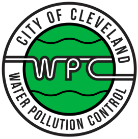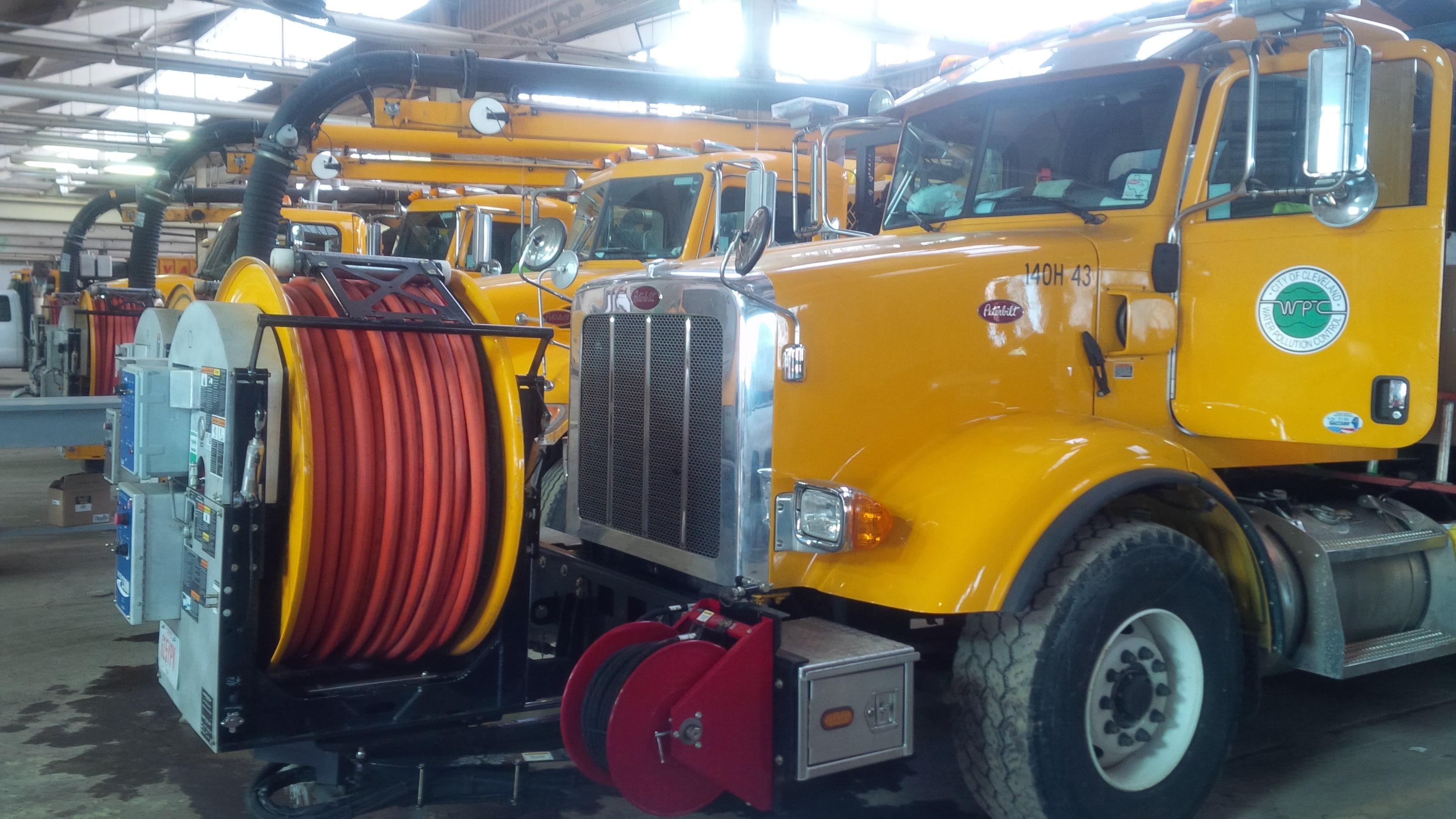FREQUENTLY ASKED QUESTIONS
Disposable disinfectant wipes, baby wipes, and even so‑called “flushable” wipes can cause serious problems for the sewer system and for your pipes because the wipes do not break down easily, or at all, once they are flushed. Paper products other than toilet paper (such as paper towels) also do not break down once in the sewer line. No matter what the label says, do not flush them, trash them instead.
When wipes and other materials interact with food grease or invasive roots in the sewer, they bind together, causing blockages and creating the potential for overflows. Sewer backups can be both messy and costly to clean up.
Water Pollution Control charges are based upon water consumption. Your local sewer charge appears on the second page of your Cleveland Water monthly bill. Your local sewer charge is not affiliated with your regional sewer charges.
Tree roots get into sewers when a sewer pipe develops a crack or other damage and nutrients and moisture leak into the soil, attracting the roots.
The solution:
Root penetration can be remedied by repairing the faulty sewer pipe and ridding the pipe of roots. The maintenance of private sewers is the responsibility of private property owners. The City will repair and clean out public sewer lines.
Property owners are responsible for maintaining and repairing sewer laterals.
Keep catch basins/storm drains free of debris. Do not put anything into a catch basin that may clog the sewer system or pollute waterways, such as grass clippings, leaves, motor oil, concrete, paint, bottles or cans. Clogs in the sewer system can result in street flooding and water backing up into basements.
Lessen the potential of basement flooding by not pouring grease or other clogging substances into sinks or toilets. Properly dispose of cooking grease by placing it in a throw-away container. Do not place small objects where they may fall into toilets or sink drains, and only flush toilet paper. Take motor oil and paint to a recycling center.
Water Pollution Control is a division of the Cleveland Department of Public Utilities and is not connected to NEORSD. The District is an independent political subdivision of the State of Ohio and is not part of any city, county or other governmental entity. It is governed by a seven-member Board of Trustees who serve five-year staggered terms. Three members are appointed by the Mayor of the City of Cleveland, three by the Suburban Council of Governments and one by the Cuyahoga County Executive.
The Northeast Ohio Regional Sewer District calculates your bill by multiplying your water consumption (measured in MCF, or 7,480 gallons) by a sewer rate. A base charge is then added to that total.
For more about NEORSD, go to https://www.neorsd.org.
When a city of Cleveland street floods due to rain, contact Water Pollution Control at (216) 664-2513. However, when water is flooding a street during dry weather contact the Cleveland Division of Water at (216) 664-3060.
The Northeast Ohio Regional Sewer District operates the Regional Stormwater Management Program. For more information, check out the residential credit manual.
Sewer gas odor can be caused by a dry trap in the drain. Flush the drain with a mixture of bleach and water until there is no odor. You also may contact your local gas company to investigate (if a gas leak is discovered, the gas company may turn off your gas until you can repair the issue).
Contact Water Pollution Control at (216) 664-2513 for an inspection of the City's sewer system. The inspection may determine whether a problem exists in the main sewer or on your property. If the issue is found on your property, repair will be your responsibility.
Notifying WPC prior to contacting a licensed and bonded plumber may save you unnecessary expenses. However, if you contact a licensed and bonded plumber first, make sure you get a detailed receipt.
Office hours are Monday through Friday 8:00 a.m. to 5:00 p.m. For 24-hour emergency service, call (216) 664-2513.
Wastewater It comes from:
- Homes – human and household wastes from toilets, sinks, baths, and drains.
- Industry, Schools, and Businesses – chemicals and other wastes from factories, food-service operations, airports, shopping centers, etc.
On average, each person in the U.S. contributes about 50-100 gallons of wastewater daily.
12302 Kirby Avenue, Cleveland, Ohio 44108
Property owners are responsible for any sewer issues on their property and from their property to the curb. That can include a caved-in yard or sewage backed up in your basement. You should notify Water Pollution Control(WPC) to investigate the problem. If the main sewer is flowing properly you will need to hire a licensed and bonded plumber to clear the connection. It is your responsibility to make repairs if the problem in the connection is found to be between the property and the curb.
If you hire a licensed and bonded plumber before contacting WPC and that plumber determines the problem between the curb and the main sewer, you need to get the plumber’s receipt noting the problem and exact location of the problem, and then contact WPC.
Water Pollution Control is responsible for sewer-related issues from the curb to the main sewer, which typically runs down the center of a street. WPC will repair the problem if a WPC Inspector determines the issue is on our end.
Managing stormwater flows is necessary to eliminate street flooding, protect our natural resources, reduce stream bank erosion and decrease pollutants in streams and rivers.

